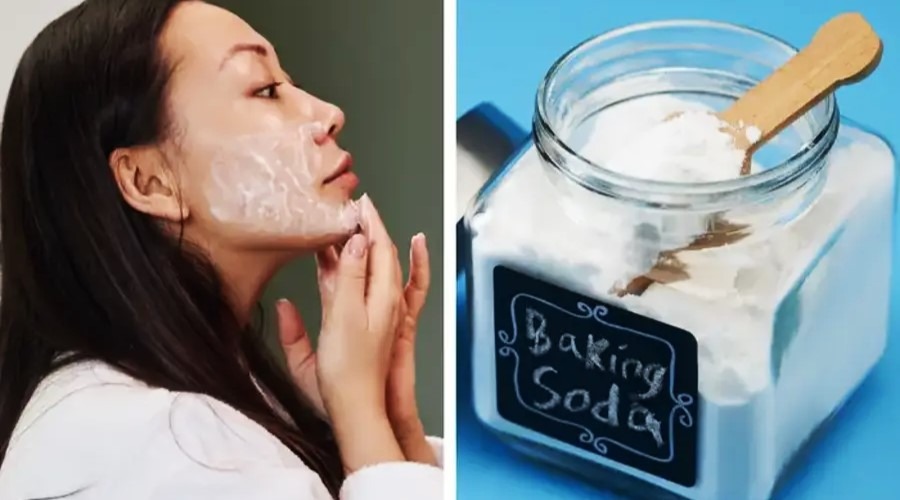When it comes to skincare, many of us are tempted to turn to home remedies and natural ingredients. While some of these remedies can be beneficial, others can cause more harm than good. This article will explore various common ingredients often used in homemade skincare treatments that you should avoid to protect your skin’s health and integrity.
The Risks of Using Lemon Juice

Lemon juice is often praised for its brightening properties due to its natural acidity. However, using lemon juice on your skin can lead to several issues. Its high acidity can disrupt the pH balance of your skin, resulting in dryness and irritation. Furthermore, lemon juice can increase your skin’s sensitivity to sunlight, raising the risk of sunburn and long-term damage. If you’re looking for a natural brightener, consider safer alternatives like vitamin C serums specifically formulated for Skincare application.
The Dangers of Baking Soda

Although baking soda is a common component for homemade scrubs, using it too often might be bad for your skin. It can help exfoliate, but it can also deplete your skin of its natural oils, making it more sensitive and dry. Baking soda’s rough texture can aggravate skin conditions like redness and irritation by creating tiny rips in the skin. Rather than using baking soda, choose mild exfoliants made specifically for your skin type.
Toothpaste: A Common Misconception
Many people use toothpaste as a quick fix for acne due to its drying properties. However, this common misconception can backfire. Toothpaste contains ingredients that can irritate and inflame the skin, worsening the very problems you’re trying to treat. The harsh chemicals may strip away natural oils, leading to an increase in acne and other Skincare issues. For treating blemishes, look for products specifically formulated for acne treatment, such as salicylic acid or benzoyl peroxide.
Alcohol: A Double-Edged Sword
Alcohol is often included in toners and astringents because it can effectively remove dirt and oil. However, its drying effect can strip the Skincare of essential moisture, leading to irritation and sensitivity. This can create a cycle where your skin produces more oil to compensate for the dryness, potentially worsening acne and other skin conditions. Instead of alcohol-based products, consider alcohol-free toners that contain soothing ingredients like witch hazel or rose water.
The Pitfalls of Egg Whites

Using egg whites in homemade masks is a popular trend for tightening pores and reducing oiliness. However, the proteins and enzymes in egg whites can actually dry out your skin, leading to irritation and increased sensitivity. For a safer alternative, look for masks that contain hydrating and nourishing ingredients like honey or aloe vera, which provide benefits without the risk of drying out your skin.
Sugar: A Sweet Scrub Gone Wrong

Despite being a popular natural exfoliator, sugar actually has more negative effects than positive ones. If the grains are overly rough, it might cause discomfort and tiny tears. If you want to exfoliate, think about utilizing milder products like oatmeal or chemical exfoliants, which give you smoother skin without compromising your skincare.
The Risks of Vinegar
Vinegar is sometimes touted as a natural cleanser, but its acidity can disrupt your skin’s natural pH balance. This disruption can lead to a damaged skin barrier, increased sensitivity, and irritation. If you want to incorporate natural cleansing methods, consider using mild cleansers that are pH-balanced to maintain your skin’s integrity.
Cucumber Juice: Not as Innocent as It Seems
While cucumber juice is often viewed as a hydrating ingredient, it can actually harm your skin. The enzymes in cucumber juice may break down the proteins in your Skincare, leading to increased sensitivity. Instead of relying on cucumber juice, choose products formulated with hyaluronic acid or glycerin for hydration without the risks.
The Downside of Tomato Juice

Tomato juice is often used as a natural cleanser, but it can be quite harsh. The acidity in tomatoes can dry out your skin and disrupt its pH balance, leading to irritation and redness. For gentle cleansing, look for milder products that cleanse without stripping your skin’s natural moisture.
The Hazards of Hydrogen Peroxide
Because hydrogen peroxide has antimicrobial qualities, it is occasionally used to treat acne. But because of how abrasive it is, it may seriously harm skin, causing dryness and inflammation. This may worsen your acne and damage your skin’s protective layer over time. Select acne treatments that are particularly made to be mild but effective.
Choose Wisely for Healthy Skin
To keep your skin looking and feeling good, you must take care of it. Although homemade cures may seem appealing, it’s important to understand the possible hazards connected to certain substances. Always choose skincare products that are tailored to your individual skin type and made with safe, non-irritating components. By making informed choices, you can achieve glowing, healthy skin without the unwanted side effects of harmful substances.
You may make sure that your skincare regimen benefits your skin rather than detracts from it by avoiding these typical errors. Today, embrace the road to healthy skin by making the move to safer options!
Read More: Escalating Risk of EV-D68: A Polio-like Illness in U.S. Children






